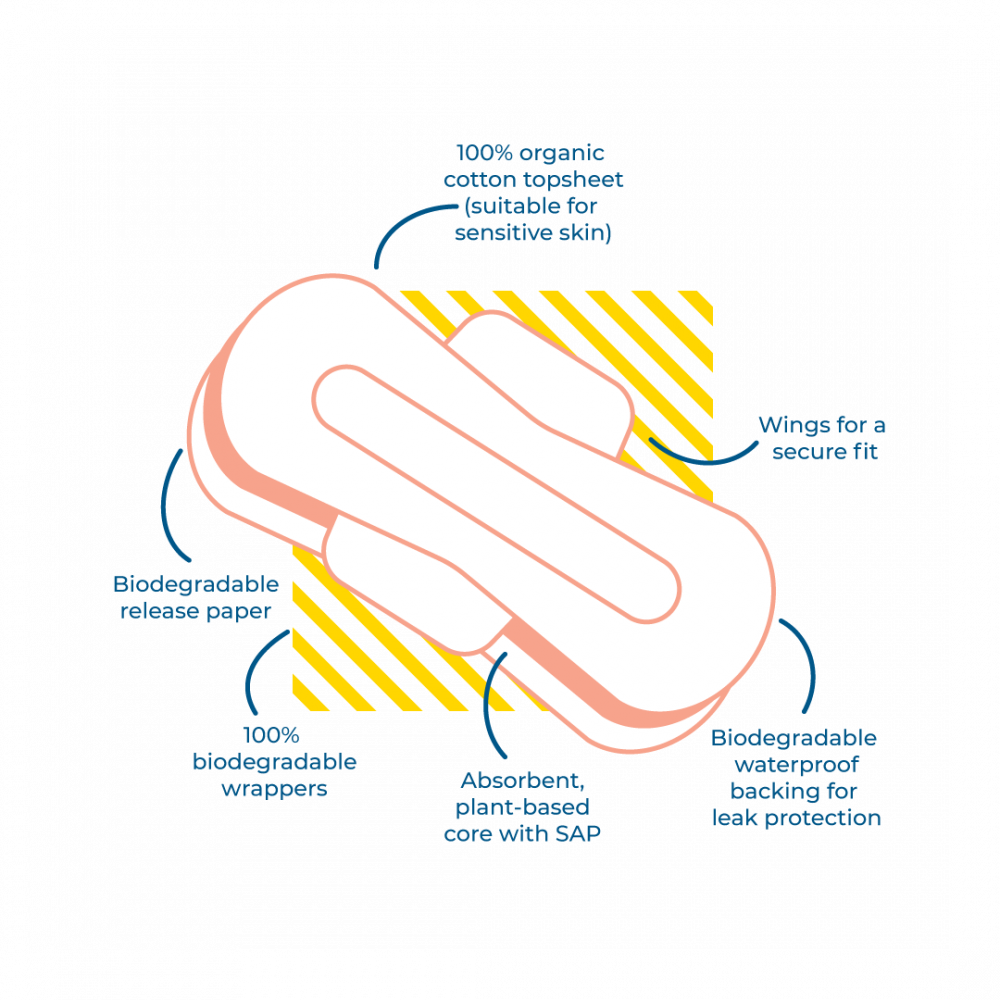First up – no, conventional tampons are not the devil incarnate. But, when organic cotton is put head-to-head with conventionally farmed cotton, it is the environmentally friendly winner. And with no synthetic chemicals involved, it does mean there is less chance that nasty business is going into our hoo-has.
Okay, what’s the go about conventionally farmed cotton versus organic?
Ah, we are so glad you asked.
Organic cotton is grown without chemical pesticides or harmful fertilisers, which is why is it often seen as more of a goody gumdrops option for our planet as opposed to conventionally farmed cotton. The farming of organic cotton is also less likely to contribute to global warming, acidification, and eutrophication (which, in a nutshell, can cause algae blooms and tainted water supplies) than conventional cotton farming.
In fact, Textile Exchange released a Life Cycle Assessment (LCA) for organic cotton. Data for the study was culled from the top five countries for organic cotton cultivation – India, China, Turkey, Tanzania and the United States – which, combined, account for 97% of global organic cotton production.
When findings of the LCA were compared to results from a study of conventional cotton it was uncovered that organic cotton had 46% reduced global warming potential, 70% less acidification potential (such as acid rain), 26% reduced eutrophication potential and 62% reduced (non-renewable) energy demand.
To bring this a little closer to home, a bee keeping operation in NSW’s Riverina region lost 500 hives due to insecticide spray drift that the owner of the operation believes came from nearby cotton farms.
Heavy use of pesticides also raises concerns about the health of farmers and surrounding communities. The World Health Organisation’s (WHO) Institute for Research on Cancer has classified glyphosate, a pesticide commonly used in cotton farming, as “probably carcinogenic to humans”. As this article from The Guardian shows, it is a controversial issue at the moment. Many studies support WHO’s findings and many don’t.
Safe to say that we like to err on the side of caution and just not.
What about our lady bits?
Picture the fluffy ball cuteness of the cotton plant. Pretty much that is all our organic tampons are made out of. 100% certified organic cotton, with no fragrances, chemicals, dyes or synthetic materials. Regular tampons can contain synthetic materials like rayon and dyes. And we know that our vaginas are pretty damn effective at absorbing stuff into our systems, so, in our books, the more pure it is, the better.
And yes, there’s a talk out there that conventional tampons contain trace chemicals. Let’s all take a breath. A possibly toxin-laden breath. City-dwellers, we inhale and digest some nasty shite in our day-to-day meanderings, so the addition of trace chemicals via tampons is kinda a toughie. But what we do know is that if we can minimise our exposure to bad stuff, especially given how everywhere it seems to be, that’s a win.
We’re here to offer an option that’s convenient, safe and future-friendly. Peace out, babes.





